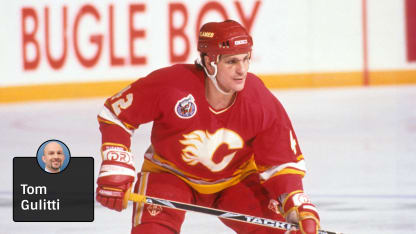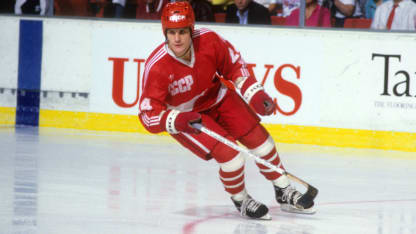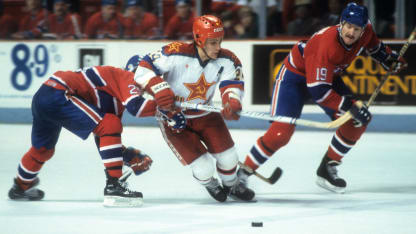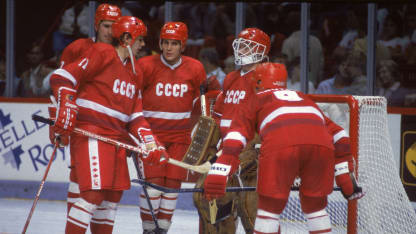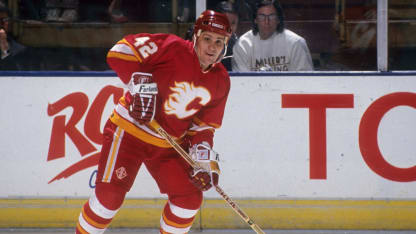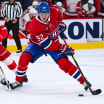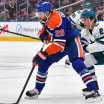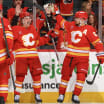Larionov sees stylistic similarities to Makarov in St. Louis Blues forward Vladimir Tarasenko and Chicago Blackhawks forward Patrick Kane. Roberts compares him to Jaromir Jagr of the Florida Panthers.
"Jaromir Jagr has a big body that protects the puck as well as Sergei Makarov did," Roberts said. "Sergei Makarov was the same way. He could control the puck and stick his big [rear end] out and spread his feet, and you could not lift his stick to get the puck off his stick."
Although synonymous with the "KLM line," Makarov attributes his Soviet-era success to being part of a consistent group of five players. Dubbed the "Green Unit" because of the color of their practice jerseys, it featured Krutov, Larionov and Makarov, and defensemen Viacheslav Fetisov and Alexei Kasatonov.
"It's not right to talk about three because there were five of us," Makarov said. "We played together on the Red Army and we played together on the national team. What was good about this is we spent lots of time together and we knew each other. Everyone knew each other's role, how to skate and how to pass together. When you play with the same guys all the time and every one of them is a great player, it's easy to play."
Well aware of the talented players in the Soviet system, NHL teams began selecting them in later rounds of the draft. The Flames picked Makarov, who was 24 at the time, in the 12th round (No. 231) of the 1983 NHL Draft.
"He was referred to at that time as the Wayne Gretzky of Russia," said Cliff Fletcher, then the general manager of the Flames and a 2004 Hockey Hall of Fame inductee. "He played on that powerhouse Red Army team, which was one of the greatest hockey teams ever, and he was the key player on their No. 1 line. Anybody who was a hockey fan, when you saw him play you knew he was a great player. The issue was, obviously, would the Soviet government ever reach the point where they would give permission to some of these players to leave."
With the Cold War nearing its end in 1989, it finally happened. Separated from Krutov and Larionov, whose NHL rights were owned by the Vancouver Canucks, Makarov was immediately slotted onto a line with Roberts and Nieuwendyk. That spot was open because Hakan Loob decided to return to his native Sweden after helping the Flames win the Stanley Cup in 1989.
Although Makarov bristled against the dump-and-chase approach NHL teams sometimes used, his skill shone through. In his first season he set a Flames single-game record with seven points (two goals, five assists) in a 10-4 win against the Edmonton Oilers on Feb. 25, 1990.
Roberts jumped from 22 goals and 38 points in 1988-89 to 39 goals and 72 points in 1989-90. During that season Roberts' then-wife, Tamra, was pregnant and he jokingly promised Makarov he'd name his first-born after him if he was a boy "because he was so good at giving me so many scoring chances."
